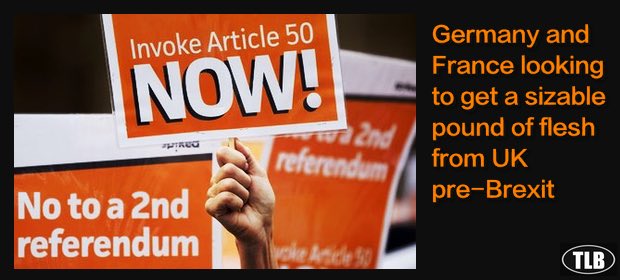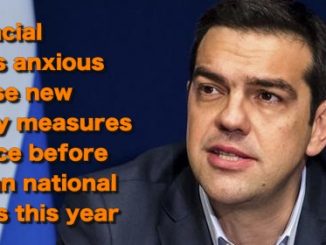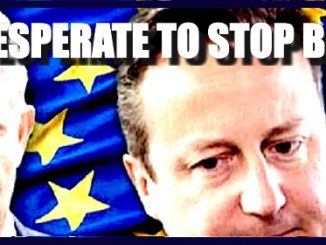
Europe wants Britain to pay billions into EU schemes up until 2023
PETER FOSTER
The European Commission wants Britain to be paying into EU projects for four years after it has signed a Brexit deal, with final payments continuing up until the end of 2023, the Daily Telegraph has learned.
The plan is part of a European Union demand that Britain settles a €60bn “Brexit bill” before being granted a deal that will govern future trade relations.
The suggestion that Britain should pay in instalments up until 2023 was made at a meeting earlier this month between Michel Barnier, the European Commission’s chief Brexit negotiator, and senior officials from the 27 remaining EU member states.

Michel Barnier, European Commission’s chief Brexit negotiator. CREDIT: AP
The aim of the payments would be to help smooth over the €10bn-a-year black hole left in the EU budgets by Britain’s departure from the EU, which could see richer countries like Germany and France paying more, or poorer countries, like Poland and Hungary receiving less.
“The Commission wants the UK to pay in instalments from the day of departure in 2019 up until 2023, which is when the financial demands of the EU’s seven-year budget cycle are at their highest,” said an EU diplomatic source with knowledge of the meeting.
Theresa May promised that Britain would stop making “vast contributions” to the annual EU budget after Brexit, but the EU will demand that Britain keeps making payments to honour commitments already made in the 2014-2020 budget round.
The proposed payments reflect the reality that EU projects that Britain agreed to support prior to departure in March 2019 will not require funds to be actually disbursed until up to four years later.
The prospect of paying into Europe for so long after Brexit in order to win a favourable trade deal presents a political headache for Mrs May and has raised fears among major EU countries, led by France and Germany, that Britain will not honour its side of the bargain if relations subsequently sour.
The meeting between Mr Barnier and the EU member states also revealed a deep split between France, Germany and the European Commission over how to calculate what Britain owes prior to “B-day”, scheduled for March 2019.
The European Commission believes that Britain should be allowed to off-set its share of the EU’s €154bn assets against its owings – comprised of annual budget commitments until 2019, pension obligations and other longer term liabilities.
“Both France and Germany objected to this, but the Commission said it was hard to argue that Britain must pay up for its outstanding commitments while refusing to recognise its share of the EU’s assets,” the source said.
According to plans laid out in the meeting, the European side wants Britain to sign an agreement in principle on how its owings should be calculated, before opening discussions on a future trade deal.
Germany and France again raised questions about whether such an agreement on methodology would be binding and “written in stone” or would be something looser that the British side would seek to amend at a later date.
In a hint of a possible compromise for British negotiators, senior Commission officials told the meeting that while they would not bend on the principle that Britain must settle its bills, it could be flexible on how those owings were presented.
ER recommends other articles by The Daily Telegraph
Peter Foster is the Europe Editor at the Daily Telegraph




